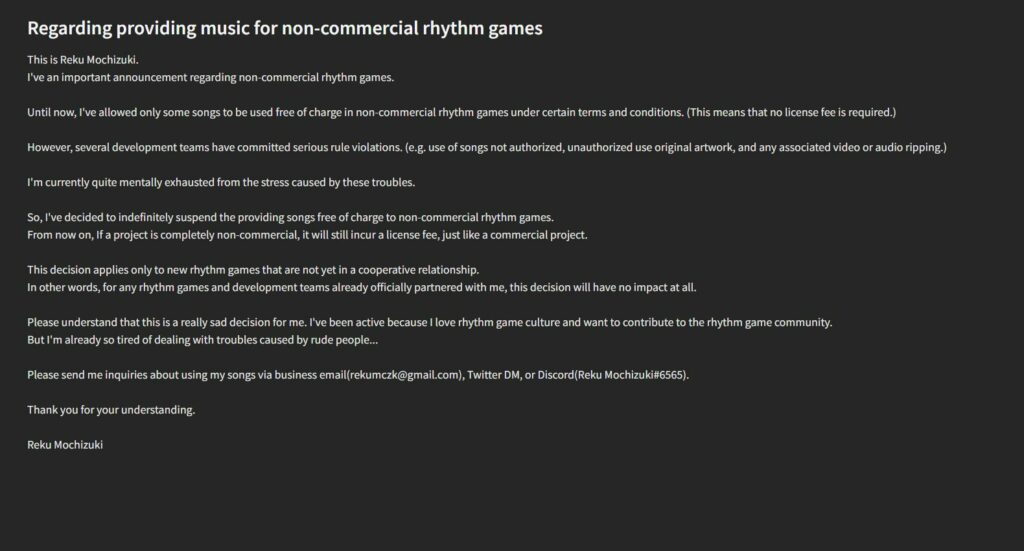Tea Time 1 – Reku Mochizuki
Welcome to the first of a series of interviews with rhythm game composers conducted by me, with the composer Reku Mochizuki!
These interviews will be titled “Tea Time With…” as I hope these are treated more like conversations instead of actual interviews. The questions can be back and forth where both sides may ask questions, and ask for elaborations from the other side. If God willing, this is the first of many I’d like to conduct at least once a month.
A long time contributor to rhythm games, Reku Mochizuki (sometimes shortened as RekuMochi) should need no introduction to some of you. However, for those newer to the scene, let me give you a little run-down on him.
A self-described “Rhythm Game Enthusiast“, Reku has been composing music for about 7 years. Making his debut in Muse Dash, he eventually made his way to more games such as Phigros and Lanota. In SparkLine, some of his songs include Ascend to Alpha (with credits to Oshiribeat as well) and RevitaLine, an original song made exclusively for us!
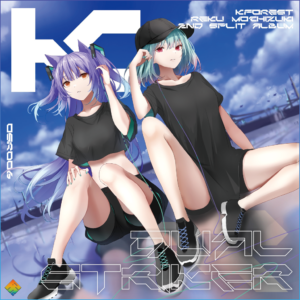
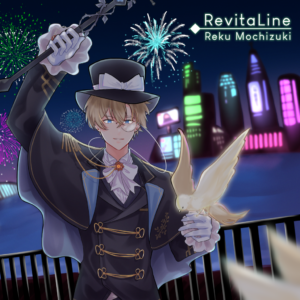
Reku has a good understanding of English, and no doubt many stories to tell. That makes him one of the best candidates for this tea time! I hope that with this interview, we understand him better and gain perspectives that are otherwise unknown.
Anyways, let’s immediately jump to the questions! It’s a pretty long interview so brace yourself.
Some Info and Disclaimers
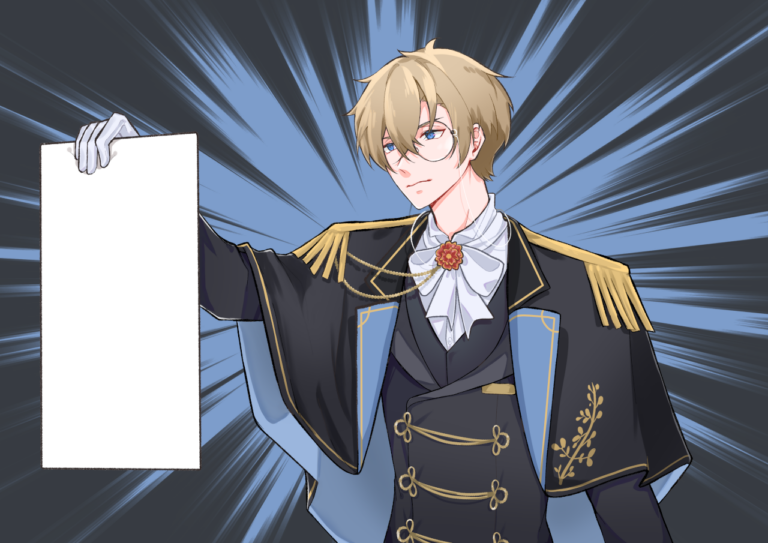
We would like to ensure the information displayed are not vague. This means other (rhythm) games will be directly mentioned and not censored. Official sound sources are used when we need a video reference to certain songs. Please let us know if you do not wish your game to be mentioned directly in this blog.
I (eoS) will write in red, and him (Reku) in blue. Links will be in orange color.
Becoming a Rhythm Game Composer
For the first part of the tea-time, let us find out about Reku’s past, and why he decided to become an otoge (rhythm game) composer.
The First Rhythm Game Experience
To start this conversation, let’s talk about your history. What is the earliest influence that made you get into rhythm game?
When I was in elementary school, I played popular RPGs and action games. I remember playing them to talk about with my friends.
My first encounter with rhythm game culture was with CS DDR (Home versions of DDR) that was in my parents’ house. When I was a kid, I didn’t know anything about dance music. Hearing and experiencing it for the first time left such an impact on me… That impact lives on in my heart even now, many years later.
Later I started going to the local game center, and by the time I was in junior high school I was completely addicted to rhythm games. I still don’t know exactly why I got into rhythm games. But one thing I can say for sure is that I’ll always remember the excitement I felt when I first played DDR.
Interesting! The first rhythm game I played was DDR as well. I forgot exactly which version, but I did remember playing the Disney Mix. Did you remember the first DDR version you played and whether you… used a pad, or a controller like I did?
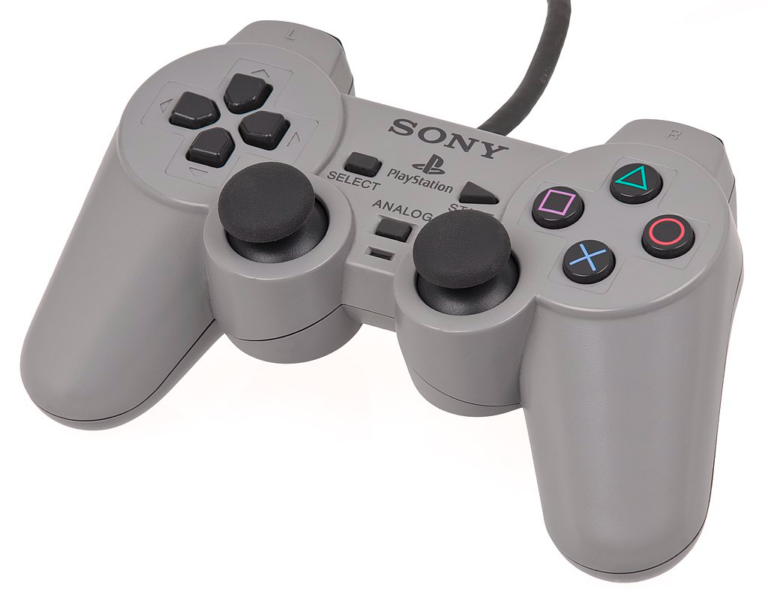
The version is “Dance Dance Revolution 2nd ReMIX for Play Station“. The songs I was particularly passionate about at the time were “IF YOU WERE HERE / JENNIFER” and “TRIP MACHINE / DE-SIRE“.
And I was playing with an official mat-type controller!
I see. After I cross-checked with the songlist, that’s one licensed song and one original song! On a personal note, I remembered playing Pink Rose by Kiyommy and Seiya a lot. But that’s… on a PS2 DDR.
The Trigger to Composing
On to the next question – Being inspired by rhythm games is one thing, but becoming a composer is a whole another thing. What made you take the leap to composing music?
It started out as an “escape”. I originally dreamt of becoming an illustrator.
That dream lasted for years and to be honest, it hasn’t completely disappeared to this day.
At a certain point, I realized that I had no talent for painting. When I was in the dark, it was my hobby of playing rhythm games that supported me. My enthusiasm for the rhythm game eased my sadness at giving up on my dream. And soon, it gave me a new dream. That is exactly what I dreamed of – becoming a rhythm game composer. That dream came true, and here I’m today.
When I was in the dark, it was my hobby of playing rhythm games that supported me. My enthusiasm for the rhythm game eased my sadness at giving up on my dream. And soon, it gave me a new dream. That is exactly what I dreamed of - becoming a rhythm game composer. That dream came true, and here I'm today.
Reku Mochizuki
It’s a roundabout trip, but I’m glad that what you are doing now is part of your dream. Nothing to add for me other than that!
Dealing with Recent Struggles
Of course everyone has their own setbacks to face with, and Reku is no different to us. I would say he’s amongst the ones more open to discussing it, if you keep up with his updates on Twitter. Although some of the these are perhaps painful to bring up to him, I believe it is important to discuss about some difficult realities in this rhythm game industry.
Song Submissions
Recently, there has been a trend of rhythm games opening song submissions and as you applied for a number of them, may I know your thoughts on it?
It’s still fresh in my mind that last year I was unsuccessful in almost all song submissions I submitted to. (e.g. Arcaea, CHUNITHM, SDVX, etc.).
For us rhythm game composers, song submissions are really important. We can appeal our work directly to developing team. If we do well, our dream may come true. It’s also an opportunity to increase one’s own output through participation and to learn important lessons regardless of whether one wins or loses.
Recently, there has been increasing skepticism about song submissions. This is because many of them always select only the same well-known artists. But if we look at this in a positive way – if we do well in the contest, our names will be listed with such well-known artists.
I think I’m now feeling that way and participating in song submissions in a positive way!
There are a few things that I would like you to elaborate but first – regarding this:
It's [song submissions] also an opportunity to increase one's own output through participation and to learn important lessons regardless of whether one wins or loses.
Reku Mochizuki
Learning
When the submissions are not successful, do they list out possible reasons as to why the song might not be suitable for their game to give you pointers on where to improve?
Amongst the examples you mentioned, I believe Taiko lists out the honorary mentions and details why those songs ended up not making the final cut. But when these games receives hundreds of submissions… I do understand that it may be difficult to list them out one by one.
In most cases, the reason for the unsuccessful selection is not revealed.
Really?
Yes. In most cases, emails are sent only to the successful winners. The composers that are not winning have to figure out by themselves if their works failed and why. I think many composers get stuck in this loop and don’t know what to do to improve.
That’s a difficult situation indeed. I shudder to imagine feeling stuck or even worse, regressing.
If they could offer solid suggestions for improvement, that would be greatly appreciated. However, that’d be so much to work to do that it’s scary to think about. This is because the number of composers that want to contribute to rhythm games increase day by day.
I see in many places that there is an oversupply of creators in all fields these days, not only rhythm game and composers.
The concern of supply and demand is intriguing to discuss indeed. Let’s discuss it a little later after we have concluded this part about song submissions. For now, let’s discuss about the other important thing you mentioned before.
Skepticisms
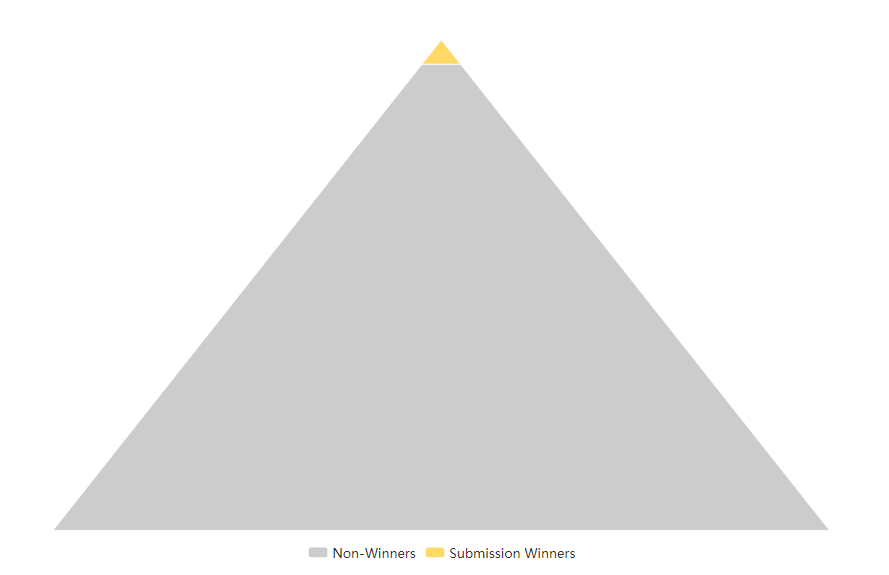
Recently, there has been increasing skepticism about song submissions. This is because many of them always select only the same well-known artists. But if we look at this in a positive way, if we do well in the contest, our names will be listed with such well-known artists. I think I'm now feeling that way and participating in song submissions in a positive way!
Reku Mochizuki
As you have mentioned before, there has been increasing skepticism about song submissions from composers. I have my own as well albeit for different reasons. When every submission can receive hundreds of entries, I feel like it’s painful to have to reject most of them (like 95-98%?) so I prefer reaching out to composers myself.
It is understandable that these song submission may be “top-heavy“. To be fair, the industries have always been like that. I feel we just have to hold faith that the decisions made are made as fair as possible and to the companies’ best interests. However, I like the way you look at it! I suppose if you win the submissions, you’d be standing on the same podium as those well-known composers!
But anyway, let’s not speak too much more about that. Let’s move on to the next question.
The Mindset for Song Submissions
What’s your reaction when you found out that your submissions are not accepted? How do you respond to such setbacks?
Basically, I’m prepared to be unsuccessful every time I submit. This doesn’t mean that I don’t have confidence in my works. Of course those are my favorite works, but it’s difficult for me now to have faith in my own abilities. (It’s too difficult to be confident after last year’s results…)
When I prepare myself for a rejection when I submit, I don’t have to be more disappointed in myself than I should be when the results are announced. This may sound negative, but it’s the least depressing way I’ve been able to derive.
Basically, I'm prepared to be unsuccessful every time I submit. This doesn't mean that I don't have confidence in my works. Of course those are my favorite works, but it's difficult for me now to have faith in my own abilities.
Reku Mochizuki
I feel that’s the correct mindset to go with for your daily life, and that includes song submissions. On the contrary I don’t feel it’s negative, but more realistic. I would dare say the opposite way of thinking “oh this is definitely winning” may have hubris in it.
Keeping your mind to every possibilities is being open-minded. While of course it hurts when things are not going the way we want it, it’s important to remain steady and soldier on ahead.
Supply and Demand
I end up monologue-ing a lot on this part… In this part, I laid out some things about making rhythm games, so please bear with me, haha.
I see in many places that there is an oversupply of creators in all fields these days, not only rhythm game and composers.
Reku Mochizuki
To continue from a previous conversation – Yes it’s true. There are so many rhythm game composers these days… As much as we would like to say “take all of them like buffet” it would not end well for us… The financial concerns are one thing, but my bigger fear is not implementing them optimally.
If that happens, we end up not putting the proper respect for their works.
You also mentioned about oversupply which I believe is true as well. At the current rate new rhythm games and composers pop up, it will be difficult for the demand to catch up with the supply.
However, I will pre-emptively say that this doesn’t mean that either me or Reku are advocating for less new composers.
So… we need more rhythm games! But first of all, it needs to be a genre lucrative enough that people make it out of pragmatic desires. In short, a “low cost high reward” venture. If a game is low cost enough, then even not “breaking even” is okay. As long as you show potential and are persistent in improving, you can make it the game that “walks” so that the next one can “run”.
A Pained Cry from the Heart
I think we are seeing more and more composers who want to become rhythm game artists. At the same time, more and more people also want to develop new rhythm games.
That’s good to hear!
While there are many kind developers like yourself who communicate with their creators via sincere emails, but there are many rude and self-centered developers who bother creators with totally insincere emails.
This announcement is a cry from my heart for such people…
It’s a shame to hear this, and to see things come this way. No matter what, treating people with respect is the most important thing. I would refrain from making further comments on these games, but hope things are better now.
On another note, I’m glad that you consider me kind and sincere! But let’s move on to another topic, as I have been taking the lion’s share of this topic…
The Arcade Dream
For almost all composers, having their songs played in arcade is a similar, but separate dream. Just look at it this way – your songs are being played in a public place. Perhaps it will even be yourself playing it, making everything come full circle. Who wouldn’t want that?
Although this is a question with an obvious answer, I still asked Reku about this regardless.
If rhythm games are my life, then arcade rhythm games, most of all, are the homeland of my soul.
My first encounter with rhythm games was with CS DDR, but it was in the arcade that I found many of the titles that led to my real inclination toward them later. SEGA’s maimai series, which began service just as I was an adolescent, is a prime example of this. It was definitely maimai that gave me the opportunity to expand my world of music.
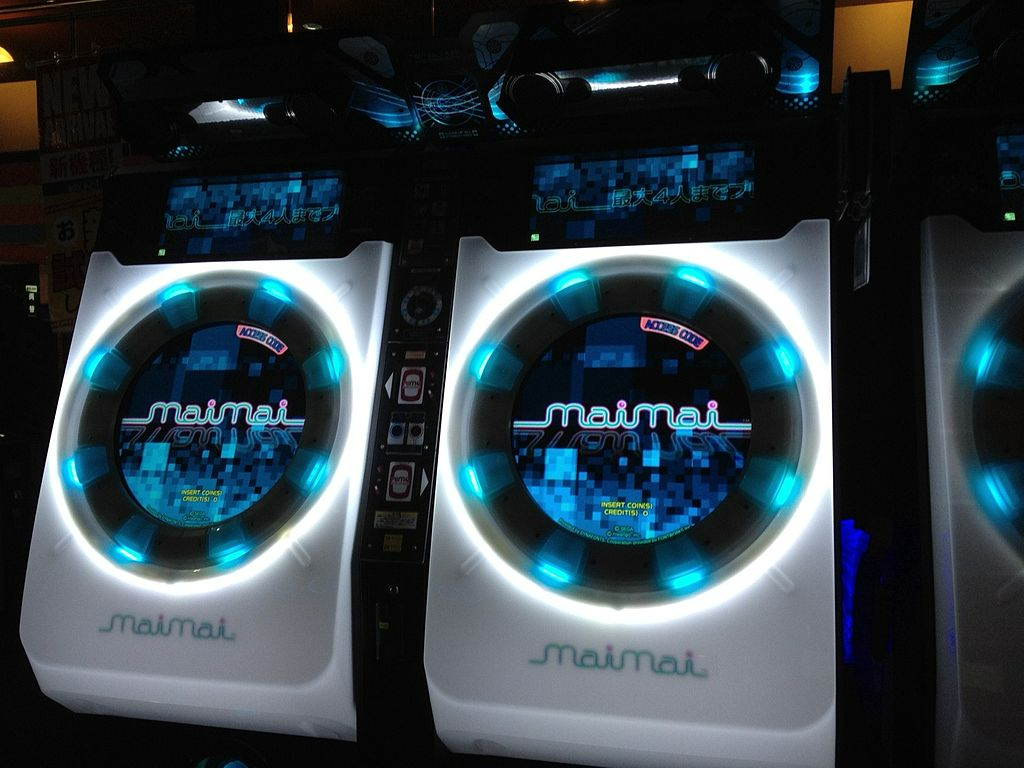
Perhaps as we are similar in age, it was Maimai that made me really hooked to rhythm games too! I played since good old 1.0 all the way to Finale. Sadly, the arcade I frequent are not updating to DX so I am playing Maimai extremely irregularly these days.
Not just About the Games
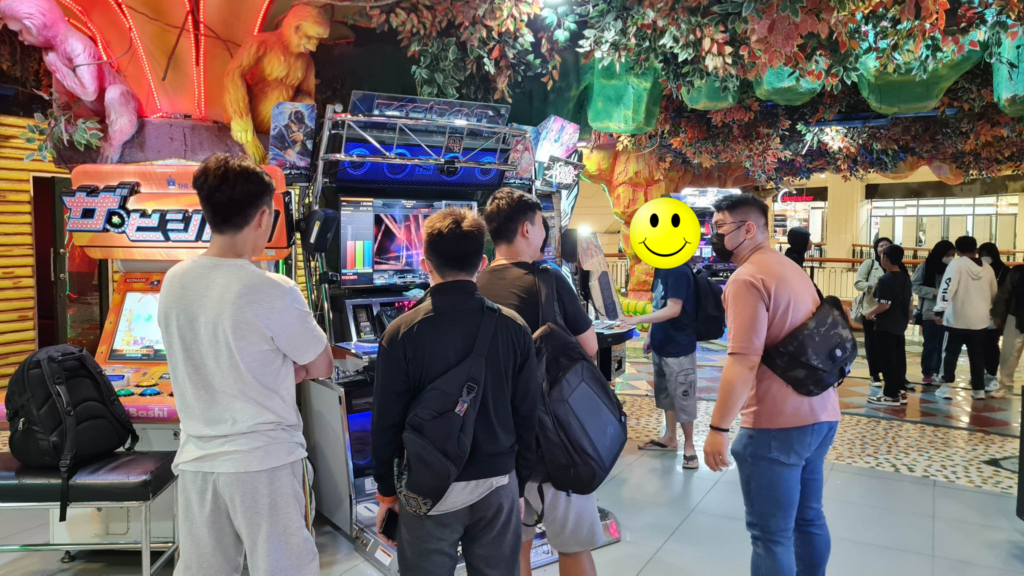
Of course, the arcade is not just about the rhythm games. For starters, there are actual, living people inside there. You should… make friends with some of them, yes? Play, laugh, despair together. In that process, making irreplaceable friends and memories.
That is something that Reku likes to express here as well.
It’s not all about the rhythm games. Without the arcade, I don’t think I’d have a place to stay when I ran away from home. The days with the people I met there are irreplaceable memories.
Arcade game center that gave light to my life. It was very natural for me to want to play my songs someday in the arcade rhythm games that cheered me up there.
Without the arcade, I don't think I'd have had a place to stay when I ran away from home. The days with the people I met there are irreplaceable memories.
Reku Mochizuki
Beyond the games themselves, the people around are definitely just as important. In the arcade, you will have to meet and socialize with people (especially for Maimai in particular as a single cabinet can be used by 2 players). Like you, it was in the arcade that I made many irreplaceable friends and memories.
And of course, as one of your clients, a fellow rhythm gamer and someone who admires your persistence, despite all the setbacks – I hope we can hear a RekuMochi song in the arcades one day!
I believe that as long as one dreams, one can move forward. Nothing would make me happier than to see my dream eventually become the fuel that moves someone else’s heart, so every time I receive such a message, I feel motivated to work harder!
That’s great to hear! Remember to work smartly as well 🙂
If you make Music that's not for Rhythm Games...
As the scoring in other games start to get influenced by modern musical genres like Dubstep, Techno, Psytrance… I believe that perhaps non-rhythm games will progressively be more open to using rhythm game composers. That is my personal wish as well.
So I duly indulged Reku with this question. First things first, would he be interested in that?
I may have a strong image of being a rhythm game artist, but I’m interested in working in other categories as well.
Great to see your interest in branching out! Not only for the wider range of clients, as doing varied things like these would broaden your horizon, which I believe would be beneficial to you overall. Any types of game genres you feel would be suited for you?
I want to make BGM for action games, STGs (shmups), and novel games. There’s sure to be a lot of learning there!
I want to make BGM for action games, STGs (shmups), and novel games. There's sure to be a lot of learning there!
Reku Mochizuki
Themes of Non-Rhythm Game Music?
Amongst the genres you have listed – action and novel games in particular are often associated with fantasy themes or otherwise, cyber.
Composers that are well-versed on this such as ruha (she does mainly fantasy), amongst those who work with us, have an advantage in this regard. As a mainly hardcore producer, I suspect there will be some adapting for you to do for these game genres, but it may be suitable for STGs and shmups.
As a rhythm gamer I personally hope in the future there will be a place for more “otoge”-ish soundtracks in other games. Fire Emblem in particular has been refreshing in this regard. Certain games employ rhythm game composers to make their OST, too!
As a rhythm gamer I personally hope in the future there will be a place for more "otoge"-ish soundtracks in other games.
eoS
Yes, there are more and more opportunities for rhythm game artists to provide BGM for other category games. This is a real pleasure, and it is a lot of fun to hear music influenced by rhythm games in so many different places.
I certainly hope that’s the future haha! But if let’s say you are called up to make a non-rhythm game music, what do you think you will make?
Hmmm, I think I would consider the style to match the mood of the game. If it were a STG with a cyber vibe, I think it would still be the sprinting, uplifting Trance!
Yeah, I can see how a cyber-themed STG would suit you! Beyond the genres you are used to (Hardcore, Trance, Chill) maybe a bit of Techno would help complete it. Hope to see the day you are called up to make music for such games!
Pivoting to Different Musical Genres
While most of you may know Reku through his Hardcore music, if you follow him you might notice he’s been trying out different music genres. There’s J-Trance (more on that as we discuss RevitaLine), Chill, House, and there’s also Ops-Limone, which did very well in last year BOF (BMS of Fighters).
I do believe there is a concerted effort from him to mix things up. When you combine the desire to make music for non-rhythm games, it might make for interesting reading. What drove him to do this?
I think many famous rhythm game composers have a genre that they are good at. And I think that is their weapon and is tied to their image.
And I’m now in front of a big wall.
That wall is that I don’t have a genre that I can weaponize in such a manner.
I think a lot of rhythm game players who know me recognize that my main genre is “Hardcore”. This is largely due to the influence of INFiNiTE ENERZY -Overdoze- (featured in Dynamix, MuseDash, Phigros, and more), which is my well-known work. But, I am still searching for “my genre” and “my style“. So “Ops:Limone” released in BOF:ET was born out of such a search.
I am still searching for "my genre" and "my style". So "Ops:Limone" released in BOF:ET was born out of such a search.
Reku Mochizuki
It is certainly true that most of the famous composers are exceedingly good (and unique) in their best genres. That’s how they are known for, I suppose! You can hear a song blindfolded and you can immediately recognize that this song is made by composer X, Y or Z.
It is surprising to hear you are still searching what you feel is your best genre and style, but I feel it is the correct answer.
After all, we are always in a journey of self-improvement.
Yes, most people would know you through IEO, and from that song you would be known as a J-Core/Hardcore composer. However, may I know if there’s any particular moment that made you think of making something Ops-Limone in particular? As in, a “Hard Waltz” song.
Ops:Limone
To be honest, the story of how “Ops:Limone” came into being is quite simple.
It was only because I wanted to try a 3/4 song. In my mind, 3/4 song in rhythm game had the image of “waltz with piano” and “high-speed boss song”, so that factor was reinforced.
Thank you for sharing your perspectives on this! The story of Ops:Limone was perhaps a tad anticlimactic, but I thought it turned out well regardless. I hope you learned, and are continuing to learn as you diversify yourself. Perhaps one day, you will have that genre you can weaponize.
About SparkLine...
This conversation wouldn’t be complete without talking a bit about SparkLine and the original song Reku provided for us, which is RevitaLine.
To provide some context for the ensuing discussions, I first contacted Reku around Feb 2022 (which is more than a year ago) to license Ascend to Alpha and two more songs. It wasn’t until April that I contacted him again to commission for RevitaLine. As the song was done around late June, it was completed very close to us going public with SparkLine!
The First Contact
When I first contacted you showing the game as its prototype with a certain popular royalty-free song, what do you think of its concept and potential?
Honest answers only!
My first thought was that it’s a rhythm game played on an unusual vertical screen.
A well-known title of this type game is Tone Sphere, I felt that chart design with a width of up and down, which is difficult to express in a typical horizontal screen rhythm game, was a unique feature of this game.
The wide range of visual presentation may take some time to get used to, but conversely, I felt that the process would be enjoyable for a long time.
You have that right! We are inspired by Tone Sphere and I feel there’s no need to pretend it’s not the case. We don’t see portrait-oriented rhythm games often. If you keep up with the trends, many recent rhythm games are both VSRG (Vertical Scrolling Rhythm Game) and landscape-oriented. I thought why not try something that’s not either of them?
That’s how I came up with the idea for this game. Of course, the initial prototype uses royalty-free songs as I prefer to have the core gameplay be good first before I take this rhythm game seriously.
If you keep up with the trends, many recent rhythm games are both VSRG (Vertical Scrolling Rhythm Game) and landscape-oriented so I thought why not try something that's not either of them?
eoS
Royalty-Free Songs?
I would also like take this time to comment on the use of royalty-free songs.
Honestly, I think it is unusual to see original songs in game prototypes. I see, and suspect that many teams use such popular royalty-free songs in their early prototypes.
On a pragmatic basis, I would encourage new rhythm games to use more royalty-free songs. Some of these songs even provide the artwork for free. You can then spare the cash for original songs, which would be the backbone and identity of your game.
Unless you have actually shipped games before, it’s difficult to measure how much everything else costs. You will need a Mac for iOS builds, Unity Plugins, localizations… even some administrative issues. Game development is a volatile industry. You have to expect the unexpected often and adapt accordingly.
That said, SparkLine at the moment ends up not using that royalty-free song… So maybe we are not the best example to copy?
RevitaLine
We ended up talking about RevitaLine and SparkLine itself for a while, so I decided to separate the topics more accordingly.
What did you think of my instructions for RevitaLine?

I was surprised at first, but at the same time pleased as I have never been commissioned to produce Trance music before. It is my favorite music genre and is a big influence on my style.
May I know which song triggered you to make this commission to me?
Note: Both of us must have forgotten about the original email when we talked about this…
As you have mentioned before, most people would associate you with Hardcore music. We already have Ascend to Alpha so we should aim for variety. Another hardcore song would be a genre overlap, which for me is not ideal.
It was a bit 50-50 for me to decide which genre I would like your song to be, but we are down to 2, which are:
– Trance, in which I really like Purified Frontier from RAVON
– Electro, something like Pastel Lines in Rizline
I see, I’m so convinced. Those 2 songs are both favorites of mine, so I’m glad you found them!
Playlist
Hehe. Not to brag, but sometimes composers may express surprise at how I found some of their… “obscure” songs. It is also my job to explore as much as possible, of course.
The J-Trance Route
As you took the J-Trance route for RevitaLine, what are your thoughts in mind as you made the song?
Any story you would like to tell, new concepts that you would like to explore, etc?
My favorite Trance category is J-Trance, first of all! This genre is difficult to explain with words, so if you’d like to sample it, you can try searching the genre in Youtube or SoundCloud!
The overall concept I wanted to express the texture of doujin music influenced by rhythm games around ’10~’15. Therefore, to some people this may sound a bit old-fashioned. The title was made by adding “Revital” and “(Spark)Line”. This… probably needs no explanation (heh).
I felt it was a bit of a throwback towards music in the older days as well! From my experience listening to the song, I thought it’s a song that could fit in the old PSP DJMAX games. And as for the song title, I can see where it comes from 😉
I love DJMAX series! I listened to a lot of them when I was in middle school, so I guess I’m influenced by them.
The overall concept I wanted to express the texture of doujin music influenced by rhythm games around '10~'15. Therefore, to some people this may sound a bit old-fashioned. The title was made by adding "Revital" and "(Spark)Line".
Reku Mochizuki
How RevitaLine is Implemented?
Every song has its own place in a rhythm game. It can be a boss song, starter song, or even somewhere in the middle. Everything blends together so that the songs complement each other and enrichen the others’ experience.
RevitaLine, too, has its own place in SparkLine’s songlist and lore. I have my own idea of implementing the song, but let’s see if it matches with Reku’s vision.
How do you think the song will be implemented in SparkLine, in terms of its role in the story and its difficulty?
In the process of creating this song, I wanted it to become “the song that everyone will always touch in this game”. The most obvious way to meet this requirement is probably a boss song. Boss songs tend to be popular and are more likely to be played repeatedly.
In the end, I chose the theme of this song as “the song that everyone plays in the beginning.” In most rhythm games, it’s still the boss song that everyone remembers the most. But, everyone starts out as a beginner, so I wanted the music to be in a position to announce the beginning of such an adventure.
My past tweets below will explain this feeling more clearly.
I chose the theme of this song as "the song that everyone plays in the beginning." In most rhythm games, it's still the boss song that everyone remembers the most. But, everyone starts out as a beginner, so I wanted the music to be in a position to announce the beginning of such an adventure.
Reku Mochizuki
"The Song that Everyone Plays in the Beginning"
If it were a boss song, I feel the J-Trance genre wouldn’t be the most suited to that… A Trance is usually about 140-155 BPM (CMIIW) while boss songs are typically beyond 200 BPM.
In the end, I decided that your song should be an ideal warm-up song. Not a “Sayonara Hatsukoi” per se, but a “world execute me” which is a little harder. Inside SparkLine’s story, you would have to play a bit to unlock this song, but it won’t take long. I’m glad that our visions for the song end up being close to each other!
Yeah, I eventually stopped making boss songs and decided to go with my current J-Trance style! I still think this style suited me better, and I think it was also appropriate for this game.
I’m glad to hear that this style is something that suits you! In regards to how it suits the game, SparkLine’s story is made so that there’s as little restriction as possible to what music we can put in the game (translation: as long as it suits my taste!)
I’m glad my style suits your taste!
For you readers, have a look at the Master chart below and see how it ranks amongst the other charts previewed.
Where RevitaLine Sits in the Story
And speaking of the story – the featured character in RevitaLine’s artwork, Zephyr, is someone who aspires to be a magician but is forced to succeed his parents’ florist shop. Although there’s a faint relation between the jobs, it’s not something he wants. A truly Asian problem isn’t it?
The background here is a clear crystal lake, ideal for a lone man’s thoughts. But, what if there’s someone willing to be frank and encourage you? The artwork, which was illustrated by Yua, was meant to show the revitalization of his dream.
What do you think of this approach that binds songs to the game’s stories?
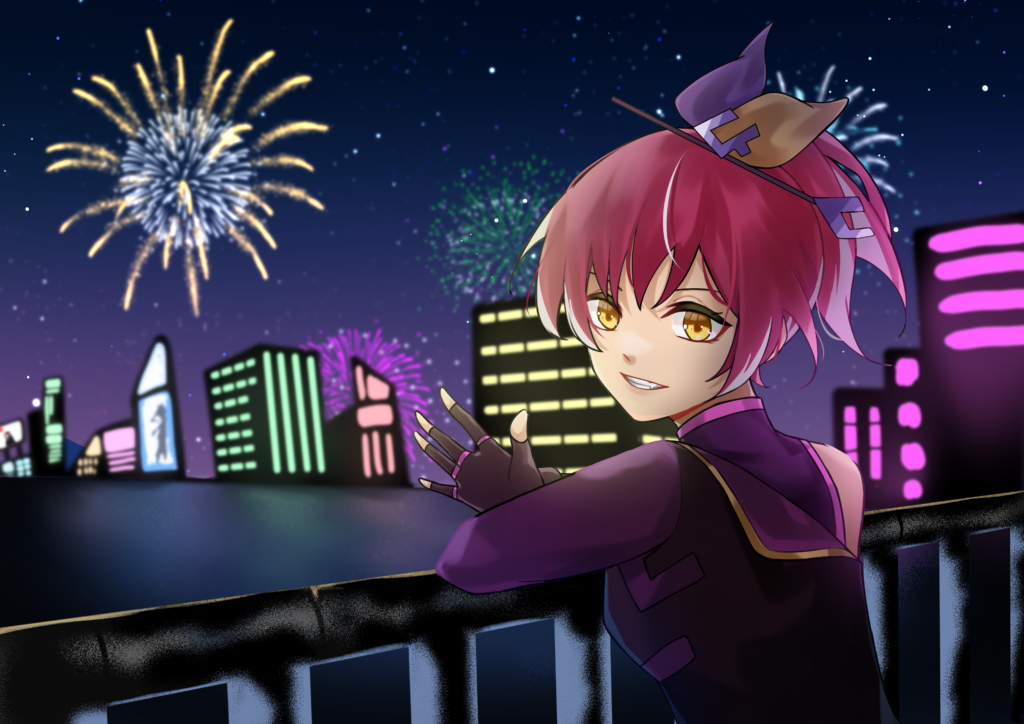
To be exact, this may be wrong, I think many people think that the main thing in a rhythm game is songs and charts, and I myself agree.
But after listening to you, the visual connection between story and artwork, and the sense that the song is present in the form of its like BGM is a delightful experience. The combination of rhythm games × story has been adopted in many titles, and each directly contributes to making that title memorable.
The Most Important Things
For most “core” players, I suppose that is true that the most important things for them may be the songs and charts. However, statistically, not many rhythm game players are actually core players. IIRC, Arcaea has a Google Play Achievement for reaching Ptt 11.00 and only 1% of players managed to reach that.
Although most of the prominent videos in Youtube for otoges are high-level plays, but I believe for most people, they are more… watch-able than playable.
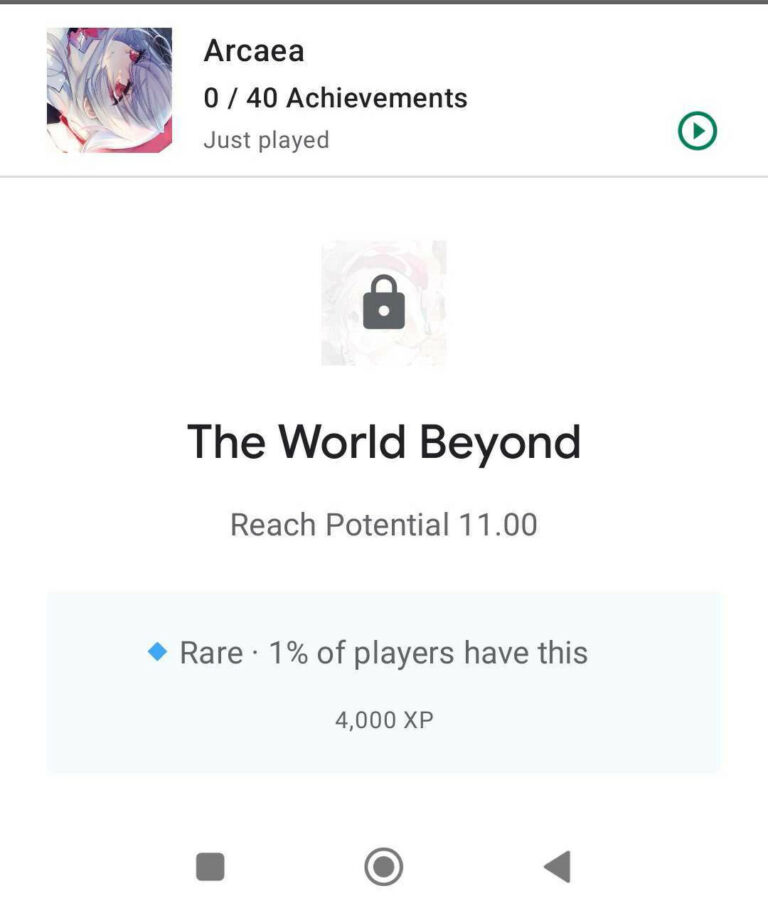
Just 1% for the Ptt 11 players? That’s less than I expected…
Yeah, I was also surprised myself. I was thinking maybe 5-10%, but not as low as 1%.
Although I believe that casual players are more important than core players in the popularity of rhythm games (in terms of number of players), but it’s still true that some core players and popular rhythm gamers are transmitting and energizing the game.
In that sense, even if a game has a large playing population and a small core player base (in other words, a game with a large casual player base), updating the content for the core player base seems to contribute to the excitement of that game.
To mention Arcaea as your example, there are a number of songs that are difficult for a casual player to even unlock in the first place. But Arcaea is a very popular rhythm game and has a strong following among casual players.
A Game's Source of Energy
I agree that core players provide the energy for the games. For more mainstream examples, take League of Legends (I don’t play MOBAs btw). Very few can play like say, Faker, but he brought excitement to so many people in and out of the LoL scene and could even generate interest from people outside of the scene.
In the end, the people inspired by him to play may end up as bronze league players, but that’s not an insult at all. As long as they remain interested in playing the game, that’s more than enough. Watching the more competitive sides of the game is the added cherry on top.
And of course, as a rhythm game we have to provide updates for the core players to have fun (this “have fun” part is important, so I prefer not giving dump charts!), but with the reminder that the updates should be as equal as possible. Meaning, they cater to both casual and core players.
To summarize a little – the songs and the charts may perhaps be the most important things. And to be fair, these two things are already a lot of work to add by themselves. Including the artwork, story, and even MVs (for certain games) is an even larger undertaking. In addition to the cost, if even one of these is not up to standard, then every other part may also suffer.
My singular hope, by putting all this effort is so that the game and the songs are fondly remembered by everyone, casual and core players alike!
Ending Messages
We have finally reached the end of this talk. It was a pretty long one, isn’t it? Although I believe we ended up going a little off-topic as times, it was a really enlightening experience for me. Hopefully Reku feels the same way as I do.
The final question is of course… What are your hopes for SparkLine and your message to the players?
I hope SparkLine will be loved by many rhythm game fans for a long time! And I hope all players will get to know many artists in this game. (This game treasures artists, so you are sure to find your favorite artist!)
Thank you Reku. If I were to say something myself, I hope that SparkLine can be a “Guiding Spark” for everyone! What that means… is up to everyone’s intepretation 🙂
To end this post, why not listen to RevitaLine’s official audio?
